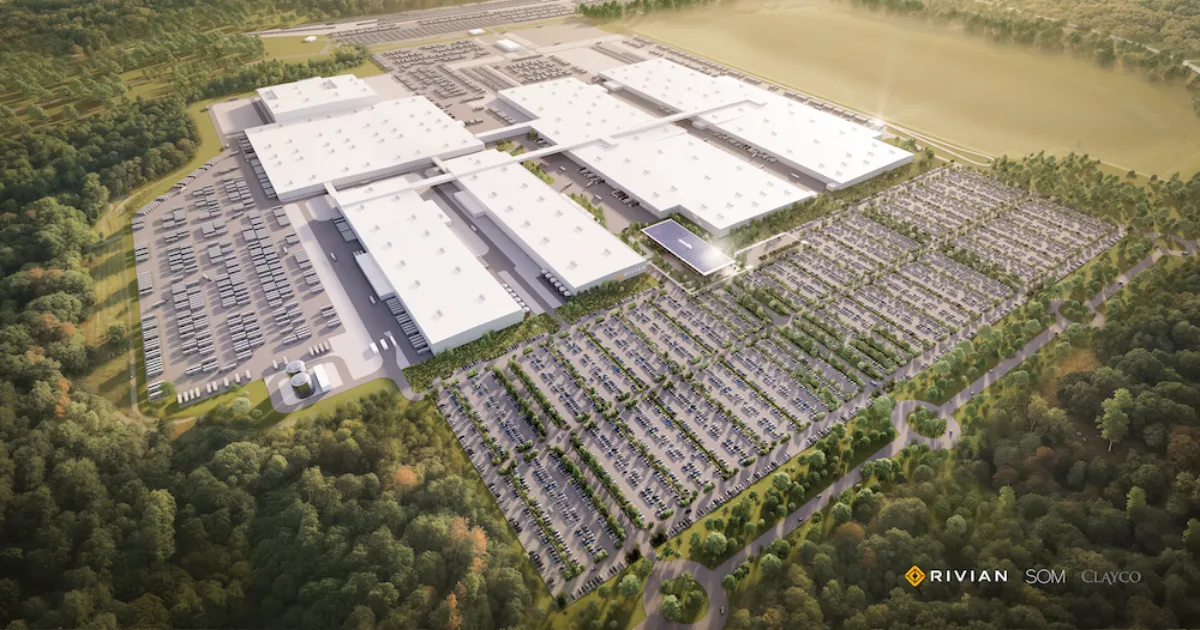Rivian breaks ground on $5 billion Georgia EV plant despite setbacks

It may look like the worst possible moment to break ground on an electric vehicle factory in the United States, but Rivian Automotive is betting big on its future. The California-based EV maker began long-delayed construction Tuesday on a $5 billion manufacturing plant east of Atlanta, Georgia—a project its executives say is vital to achieving profitability and long-term survival.
The move comes amid stiff headwinds for the EV industry. President Donald Trump’s successful rollback of federal tax credits means buyers will lose access to savings of up to $7,500 per vehicle starting September 30, a blow to companies still fighting to make their cars affordable. Rivian’s Chief Policy Officer Alan Hoffman insists the company can thrive without government subsidies.
“We did not build this company based upon federal tax incentives,” Hoffman said. “And we’re going to prove that we’re going to be successful in the future.”
Georgia Plant Central to Rivian’s Future
The Georgia facility, first announced in 2021, is Rivian’s most ambitious project yet. Currently, the company produces its high-end R1T pickup and R1S SUV in Normal, Illinois, alongside delivery vans for Amazon. With prices starting around $71,000, the vehicles remain out of reach for many mainstream buyers.
Next year, Rivian plans to launch the smaller R2 SUV, starting at $45,000, from its Illinois plant, which is being expanded to handle up to 215,000 vehicles annually. But Rivian knows scaling production of the R2—and eventually a more affordable R3—will require new capacity. The Georgia plant is designed to produce 200,000 vehicles annually by 2028, with a second phase doubling that figure.
“For Rivian, it’s do-or-die time,” said Alex Oyler, North American director of SBD Automotive. “We saw with Tesla that the key to profitability is scale, and you can’t scale if your cheapest vehicle is $70,000. So they need that plant online to achieve a level of scale with R2 and ultimately R3.”
Market Challenges and Rising Competition
Despite enthusiasm in Washington and Silicon Valley, U.S. demand for EVs has slowed. Sales grew only 1.5% in the first half of 2025, according to Cox Automotive. Tesla still controls nearly half of the EV market, though its share is slipping as legacy automakers like General Motors expand. Rivian holds just 3% of U.S. sales—small, but still the most successful among startups.
Competition is intensifying. Ford’s F-150 Lightning and Chevrolet’s electric Silverado now target the same pickup niche Rivian pioneered. Meanwhile, Stellantis recently scrapped its electric Ram program, Ford has delayed EV projects in Tennessee, and GM has walked away from a Detroit EV facility.
Financial struggles add to the pressure. Rivian lost $1.66 billion in the first half of 2025, and its shares have dropped more than 80% since its 2021 IPO. Production guidance for this year—40,000 to 46,000 vehicles—is below 2024’s output.
“With all the competition out there in this market and the slowing growth of EVs, it does not play in Rivian’s favor,” said Sam Fiorani, vice president at AutoForecast Solutions. “However, there still is an EV market out there.”
Political, Financial, and Community Obstacles
The Georgia state government is deeply invested in Rivian’s success. Officials have pledged $1.5 billion in incentives tied to 7,500 promised jobs averaging at least $56,000 per year. Already, $175 million has been spent on land preparation and infrastructure.
Governor Brian Kemp, a Republican, remains bullish. He has championed his state as “the electric mobility capital of America” and believes Rivian will deliver.
The company’s financial runway has been extended by a $5.8 billion investment from Volkswagen and a $6.6 billion federal loan commitment under President Joe Biden. But whether those funds will flow under a Trump administration remains uncertain.
Local opposition is another hurdle. Some residents near the 2,000-acre site east of Atlanta fear environmental damage. “I planned on dying and retiring on the front porch and the biggest project in Georgia has to go next door to me, of all places in the country?” said neighbor Eddie Clay, who claims excavation has muddied his well water.
On top of community pushback, Rivian faces tariffs that add $2,000 per vehicle, the loss of $140 million in revenue from expiring tax credits, and looming threats from cheaper Chinese EV imports.
Betting on Scale and Staying Power
Despite the challenges, Rivian executives argue the company is positioned to endure. Hoffman says the company is focused on producing EVs that win on quality, performance, and design—not just subsidies.
“We think that we can compete with anyone out there and that once given the opportunity, we’re going to excel,” he said.
The gamble is clear: if Rivian can successfully ramp up production of its next-generation vehicles at scale, the Georgia plant could secure its place alongside Tesla and GM as a lasting player in America’s EV future. If not, the groundbreaking in Social Circle may one day be remembered as a costly misstep in the industry’s turbulent transformation.





